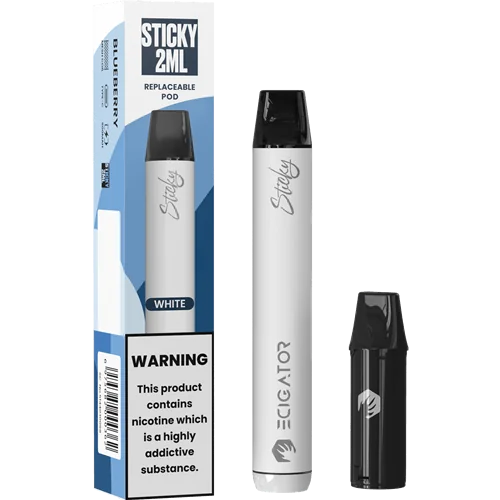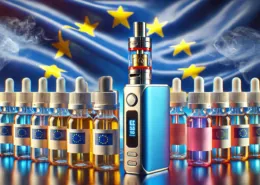Denmark Vaping Laws – Are vapes legal in Denmark?
Vaping has become increasingly popular in recent years, and Denmark is no exception. However, with the rise of e-cigarettes and related products, governments around the world have implemented various regulations to ensure public safety and health. If you’re a vaper in Denmark or considering taking up vaping, it’s crucial to understand the current laws and regulations surrounding this activity. In this comprehensive guide, we’ll explore the legality of vapes in Denmark, the current laws in place, and the potential future of vaping regulations in the country.
The Legality of Vapes in Denmark
To answer the question directly: no, vapes are not illegal in Denmark. In 2016, new rules were introduced that legalized the sale of nicotine-containing e-cigarettes and refill containers, provided that the products have been notified to the Danish Safety Technology Authority. This means that you can legally purchase and use vapes in Denmark as long as they comply with the regulations set by the authorities.
However, it’s essential to note that Denmark has banned the sale of flavored e-liquids and imposed a substantial e-liquid tax, which has made it more challenging for vapers to access their preferred products. Despite these restrictions, vaping remains legal in the country.
Current Laws on Vaping in Denmark
Denmark’s regulations on electronic cigarettes are based on the EU directive on electronic cigarettes and tobacco. Here are the key points of the current laws:
- Flavored e-liquids are banned: The Danish government prohibits the production and sale of flavored e-liquids other than tobacco and menthol. This regulation was implemented to discourage young people from taking up vaping.
- Nicotine-containing e-cigarettes and refill containers are legal: Despite the ban on flavored e-liquids, it is legal to sell nicotine-containing e-cigarettes and refill containers in Denmark, provided that the products are notified to the Danish Safety Technology Authority.
- Vape pens are illegal: In 2018, Danish authorities began cracking down on vaping products containing nicotine due to health concerns. As a result, vape pens are illegal in Denmark.
- Substantial tax on e-liquids: Denmark currently has an e-liquid tax of 2.00 Danish kroner (approximately $0.32 USD) per milliliter, which will come into effect in 2022. This tax makes vaping products almost as expensive as cigarettes for consumers.
It’s crucial to stay informed about the latest regulations, as the laws on vaping in Denmark are subject to change.
The Danish Health Authority’s Stance on Vaping
The Danish Parliament approved the Danish Health Authority’s “Tobacco Action Plan” on December 15, 2020, which brought significant changes to the vaping industry. The new restrictions came into effect on April 1, 2021.
The Danish Health Authority has taken a strict stance on vaping, implementing measures to discourage young people from taking up the habit. These measures include banning flavored e-liquids and imposing a high tax on e-liquids. The authority believes that flavored e-liquids are more attractive to young people, and by banning them, they hope to reduce the number of young people who start vaping.
In addition to the flavor ban and tax, the new law requires plain packaging for all e-liquid and devices sold after April 1, 2022. The Danish Health Authority also suggests treating e-cigarettes, smoke-free tobacco, and other new tobacco and nicotine products equally to smoking in municipalities’ preventive initiatives, meaning that smoking regulations and initiatives could also apply to these products.
Penalties for Illegal Vaping in Denmark
Breaking vaping regulations in Denmark can result in serious consequences. The Danish Health Authority is responsible for enforcing these regulations, and they take their job seriously. Here are some of the penalties you could face for illegal vaping:
- Fines: If you’re caught vaping in a public place where it’s prohibited, you could be fined up to 2,000 DKK (about $300 USD). If you’re caught selling vaping products without the proper license, you could face fines of up to 50,000 DKK (about $7,500 USD).
- Confiscation of products: If you’re found in possession of vaping products that don’t meet Danish regulations, they could be confiscated by authorities. This includes products that contain banned ingredients or lack proper labeling.
- Criminal charges: In some cases, you could even face criminal charges for illegal vaping in Denmark. This is more likely if you’re caught selling products without the proper license or if you’re found with a large quantity of illegal products.
It’s important to note that these penalties apply not only to individuals but also to businesses. If you’re considering starting a vaping business in Denmark, ensure that you understand all the regulations and requirements before proceeding.
Danish Regulations on Vape Sales
If you’re considering selling vapes in Denmark, it’s crucial to be aware of the regulations in place. According to the Danish Safety Technology Authority, it is legal to sell nicotine-containing e-cigarettes and refill containers in Denmark, as long as the products have been notified to the authority. These rules came into force on June 7, 2016.
One of the most important regulations to keep in mind is the ban on flavored e-liquids in Denmark. The manufacture of e-liquids in flavors other than tobacco and menthol is prohibited after April 1, 2021. However, they can still be sold for one year, until April 1, 2022.
Another key regulation is the e-liquid tax in Denmark. Currently, there is a tax of 2.00 Danish kroner (approximately $0.32 USD) per milliliter, which will become applicable in 2022. This tax is expected to raise e-liquid prices from 30 kroner to 50 kroner (approximately $8.25 USD) for the average user.
It’s also important to note that there are different regulations for e-cigarettes and tobacco products. While e-cigarettes are regulated by the Danish Safety Technology Authority, tobacco products are regulated by the Danish Medicines Agency.
Public Opinion on Vaping in Denmark
Vaping has become a topic of controversy in Denmark, with public opinion divided on the issue. The Danish Health Authority has been vocal in its opposition to vaping, citing health concerns and the potential for addiction. However, there are also many people who believe that vaping is a safer alternative to smoking and should be allowed.
A survey conducted by the Danish Cancer Society in 2020 found that 57% of Danes believe that vaping should be banned in public places, suggesting that a significant portion of the population views vaping as a public health risk. On the other hand, the same survey also found that 34% of Danes believe that vaping is a good alternative to smoking and should be permitted.
Another survey conducted by the Danish Vape Business Association in 2021 found that 60% of Danes believe that vaping is less harmful than smoking, indicating a growing awareness of the potential benefits of vaping and a willingness to consider it as a viable alternative to smoking.
As the debate continues, the future of vaping in Denmark remains uncertain.
Vaping vs. Traditional Smoking in Denmark
While smoking rates have been declining in Denmark, there is still a significant number of smokers. According to the Danish Health Authority, around 13% of the adult population in Denmark smokes.
Vaping has been promoted as a less harmful alternative to smoking, as e-cigarettes do not produce smoke, tar, or ash. Instead, they heat up a liquid (e-liquid) containing nicotine and flavorings, producing a vapor that is inhaled by the user.
Although vaping may be less harmful than smoking, it is not risk-free. Nicotine is an addictive substance, and the long-term effects of vaping are still not fully understood. Additionally, there have been concerns about the safety of e-cigarettes and e-liquids, particularly regarding quality control and the potential for harmful ingredients.
If you are a smoker looking to quit, vaping may be a viable option. However, it is essential to do your research and choose a reputable brand of e-cigarette and e-liquid. You should also consult with your healthcare provider before making the switch to vaping.

Ecigator Sticky Prefilled Pod Kit
The Ecigator Sticky Prefiiled Replaceable Vape Pod Kit is new kind of vape kit which the prefilled disposable pod can be changed.
That means you don’t need to throw away the whole kit but just change another pod. Also you can change the pods to taste different flavors.
Impact of EU Regulations on Vaping in Denmark
Denmark, as a member of the European Union, is subject to the EU Tobacco Products Directive (TPD), which regulates e-cigarettes and e-liquids sold in the EU. The TPD sets standards for e-cigarette and e-liquid safety, packaging, labeling, and advertising.
One of the most significant impacts of the TPD on vaping in Denmark is the limit on the nicotine strength of e-liquids. The TPD limits the nicotine strength of e-liquids to 20mg/ml, which applies to all e-liquids sold in the EU, including Denmark.
Another impact of the TPD on vaping in Denmark is the requirement for e-cigarettes and e-liquids to be registered with the Danish Safety Technology Authority. This requirement applies to all e-cigarettes and e-liquids sold in Denmark, including those imported from other EU countries.
The TPD also requires e-cigarettes and e-liquids to be child-resistant and tamper-evident, meaning that packaging must be designed to be difficult for children to open and must have a seal that shows if it has been opened.
The Future of Vaping Laws in Denmark
As of April 2021, Denmark has banned the sale of flavored e-liquids, with only tobacco and menthol flavors allowed. This ban was put in place as a part of the Danish Health Authority’s “Tobacco Action Plan,” which aims to reduce smoking rates and improve public health. Additionally, an e-liquid tax of 2.00 Danish kroner per milliliter will be imposed starting in 2022.
The ban on flavored e-liquids has been controversial, with some arguing that it will lead to a resurgence in smoking rates. However, proponents of the ban argue that it will discourage young people from taking up vaping, as flavored e-liquids are often marketed towards younger consumers.
The future of vaping laws in Denmark remains unclear. Some speculate that the government may further tighten restrictions, while others believe that the ban on flavored e-liquids may be lifted if it is found to be ineffective.
If you are a vaper in Denmark, it is crucial to stay up-to-date on the latest laws and regulations. Be sure to purchase your e-liquids from reputable vendors and avoid buying products from the black market. Additionally, it is important to be respectful of non-vapers and to follow any designated smoking areas or rules in public spaces.
Conclusion
Vaping in Denmark is subject to a variety of regulations and restrictions aimed at protecting public health and discouraging young people from taking up the habit. While vapes are not illegal in Denmark, the country has implemented a ban on flavored e-liquids and imposed a substantial tax on e-liquids.
As a vaper in Denmark, it’s essential to stay informed about the latest laws and regulations, as well as the potential penalties for breaking them. It’s also important to consider the ongoing debate surrounding vaping and its potential impact on public health.
If you’re considering taking up vaping as an alternative to smoking, it’s crucial to do your research and consult with your healthcare provider. By staying informed and making responsible choices, you can navigate the complex landscape of vaping regulations in Denmark while prioritizing your health and well-being.
- Bestselling Vapes in UK After Disposable Ban: What to Stock 2025 - August 8, 2025
- Argentina Debates Stricter Vape Laws Amid Prohibition Failures - August 8, 2025
- Nigeria Advocacy Group Urged to Hike Tobacco & Vape Tax by 100% - August 8, 2025









